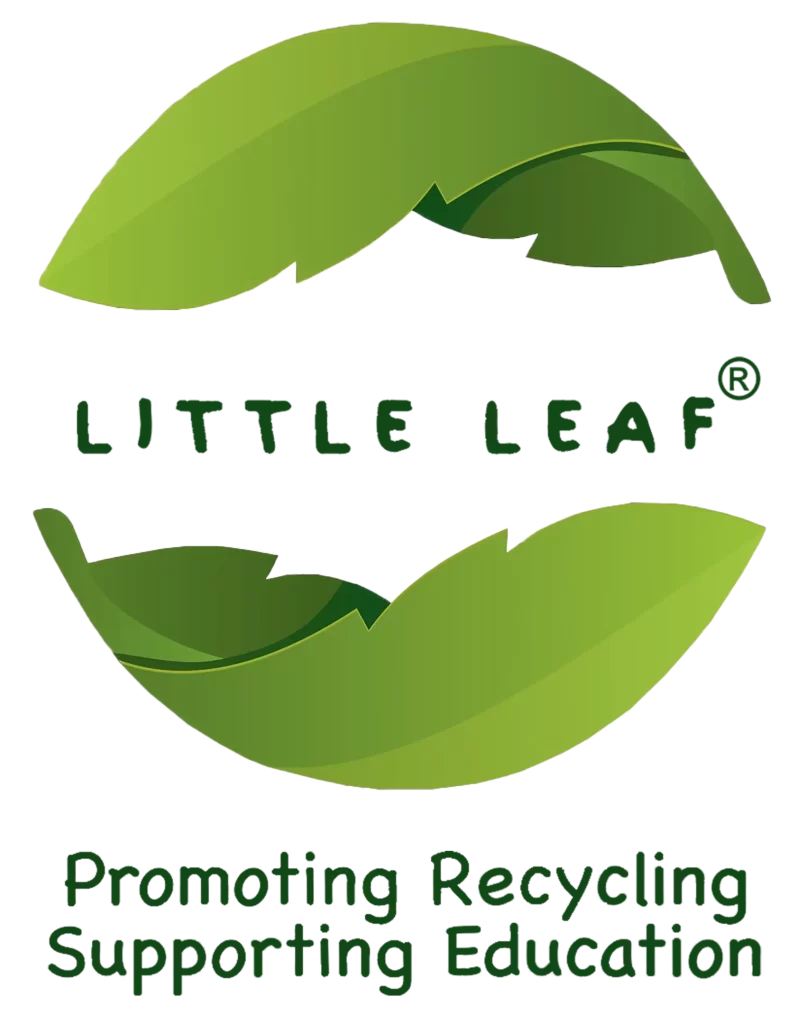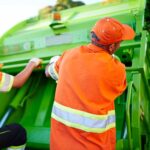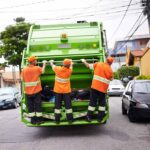Recycling

Committed to a Cleaner Future
Expert Waste Management
With years of experience in waste collection and disposal, we are dedicated to delivering eco-friendly solutions tailored to your needs. Our mission is to keep your community clean and sustainable for generations to come. Our commitment to sustainability includes proper recycling and disposal methods, minimising environmental impact and promoting green living.

Waste Solutions
We tailor our services to meet the unique needs of residential, commercial, and industrial clients.
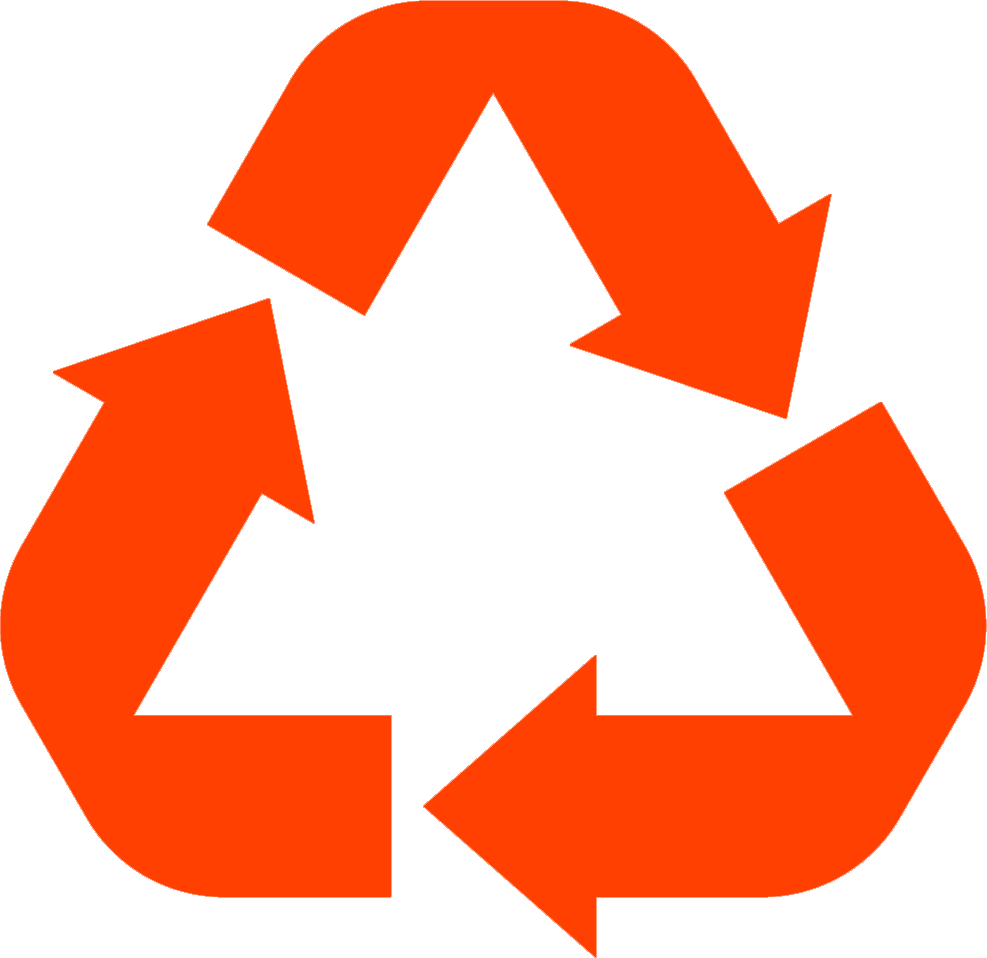
Efficient Pickups
We prioritise punctuality and efficiency, ensuring your waste is collected on a custom schedule.
Small Actions for a Big Environmental Impact
Waste collection services for 6 types of wastes

Paper Recycling
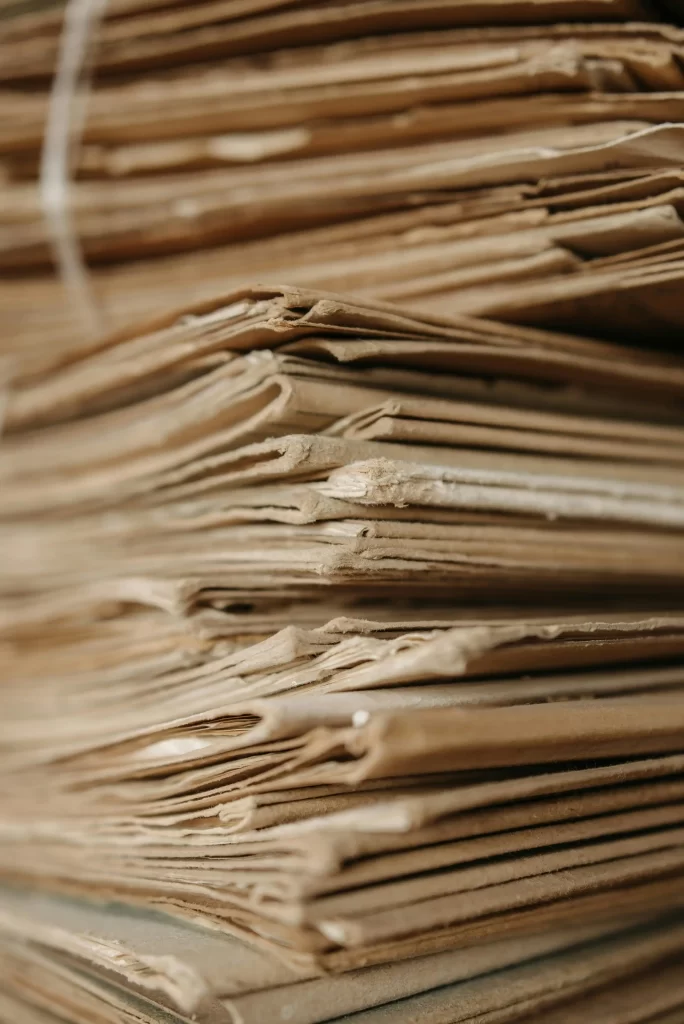

Paper
We collect all kinds of clean waste paper from your homes and industries and recycle it into notebooks or A4 paper that can be used by children or employees, or donated, thus fulfilling our mission of promoting recycling and supporting education.
The waste paper we can recycle includes newspapers, old documents/waste prints, paper bills, craft paper, cardboard boxes, cartons, clean paper food packaging, toothpaste/cream boxes, toy boxes, aeroplane boarding passes, clothing tags, old visiting cards, used wrapping sheets, books, magazines, notebooks, files, delivery boxes, cleaned food boxes, dry tissue paper, clean parchment paper, brochures, food menus, official documents, torn and shredded paper, used wrapping sheets, photos, paper packaging, medical reports, etc. We give 2 recycled paper notebooks for every 1 kg of paper recycled with us, and 1 ream (bundle) of 70 gsm A4 sheets for every 30 kg of waste paper recycled with us by an industry. Call us or message us today for a free pickup!
Plastic Recycling
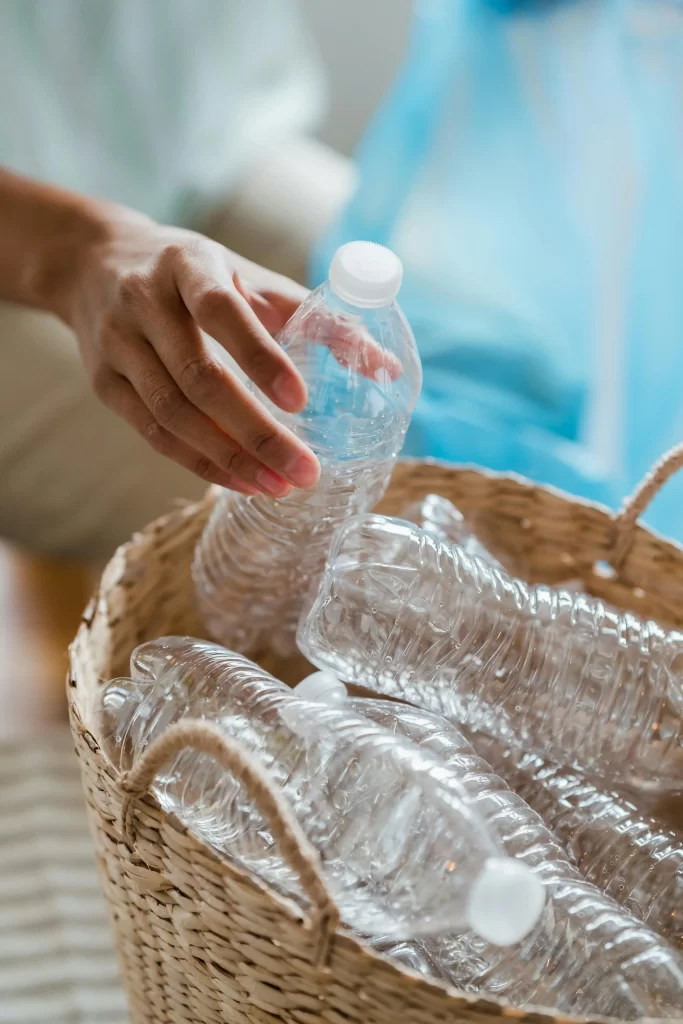

Plastic
Plastic is one of the most commonly used materials in the world today. Unfortunately, almost 70% of it goes into a landfill. We at Little Leaf convert plastic into fuel and clean synthetic gas through a process known as the Thermo Catalytic Depolymerisation (TCD) process. This process cracks the long chains of polymer to produce usable fuel. The waste plastic received by us is cleaned and shredded into small pieces before the Thermo Catalytic Depolymerisation (TCD) process to remove contaminants like paper, oil, grease, food particles, etc. The TDS process is performed within a heated sealed reactor. The reactor is loaded with the shredded plastic and is heated, and the catalyst helps in cracking the long chains of polymers in the absence of oxygen to produce hydrocarbon vapours. The plastic depolymerises at 380 – 430°C, and the gases are condensed. The condensed vapour produces the fuel and synthetic gases, out of which the syngas is used as an energy source for the further heating of the reactor. This synthetic gas, which is a byproduct, is passed through a scrubber and cleaned prior to being used as a heating source, helping improve the efficiency of the process. The fuel passes through the filtration system before it’s collected. The non-plastic material and non-depolymerised plastic settle at the bottom of the reactor, collected after the shift or during weekly maintenance.
Metal Recycling
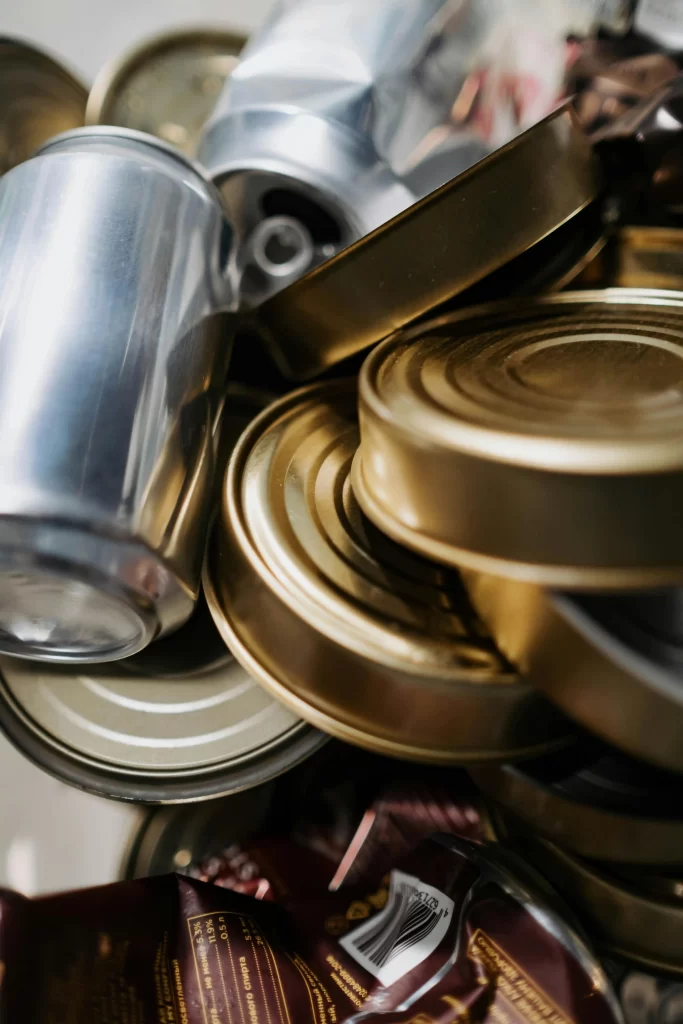
Metal
Recycling metals significantly reduces energy consumption, greenhouse gas emissions, and water pollution compared to producing metals from raw materials. Recycling helps conserve natural resources by reducing the need for extensive mining operations. It promotes a circular economy by keeping materials in use for longer and reducing waste. The total quantity of recycled steel used in various sectors, including construction, automobile and infrastructure sectors, etc., in the country is approximately 30 million tonnes (MT).
The overall utilisation of the steel scrap in the steel sector in India is around 25% of the input material used. In India, recycling steel uses 75% less energy compared to creating steel from raw materials, enough to power 18 million homes.
Our metal recycling partners recycle all metals and forward them to the right industries, making sure they are not sent to landfills.
Call us or message us to know more about our metal recycling programme.
E-Wate Recycling
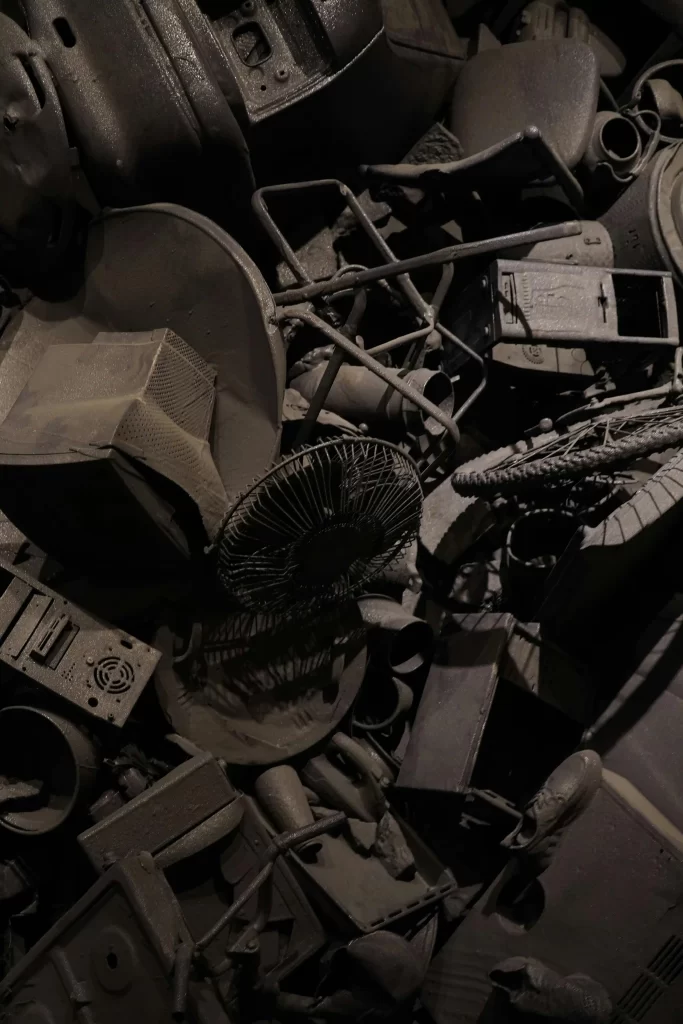
E-Waste
About 95 per cent of India's e-waste is recycled in the informal sector and in a crude manner. This informal sector often relies on rudimentary recycling techniques that can release toxic pollutants into the environment and pose health risks to workers. Informal waste pickers, also known as "kabadiwalas" or "raddiwalas", play a significant role in collecting and sorting e-waste. The Indian government has implemented regulations, including the e-Waste (Management) Rules, to address e-waste management, aiming to digitise the process and enhance visibility.
The e-waste you recycle with us is sent to only authorised dismantlers, and we make sure it is dismantled ethically into separate different materials like plastics, metals, and circuit boards, which are then further sent to specific recycling facilities which specialise in recycling these materials.
Call us or message us to know more and recycle your e-waste with us.
Glass Recycling
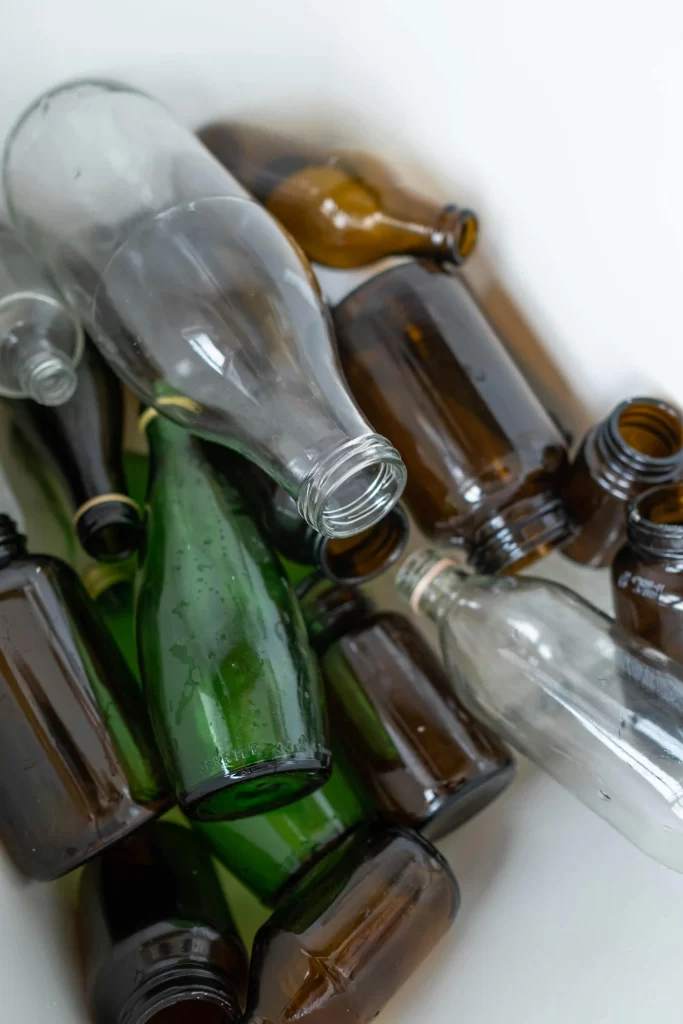
Glass
Glass is infinitely recyclable and can be recycled an unlimited number of times without any loss of quality or purity. In India, while glass is highly recyclable, only about 45% of glass waste is currently recycled, with the remaining often ending up in landfills or being downcycled. A significant portion of glass waste still ends up in landfills, posing environmental and sustainability concerns. Glass recycling is crucial for promoting a circular economy and reducing reliance on virgin raw materials. Recycling glass requires less energy than manufacturing glass from scratch, saving energy and reducing costs.
We collect clean glass waste and forward it to recycling facilities located nearby. We ensure the collected glass is 100% recycled and used as raw material for new glass products in construction (like aggregates for roads and concrete) and as a cement substitute, contributing to a circular economy and reducing reliance on virgin materials.
Call us or message us to know more about our glass recycling programme.
Fabric Recycling
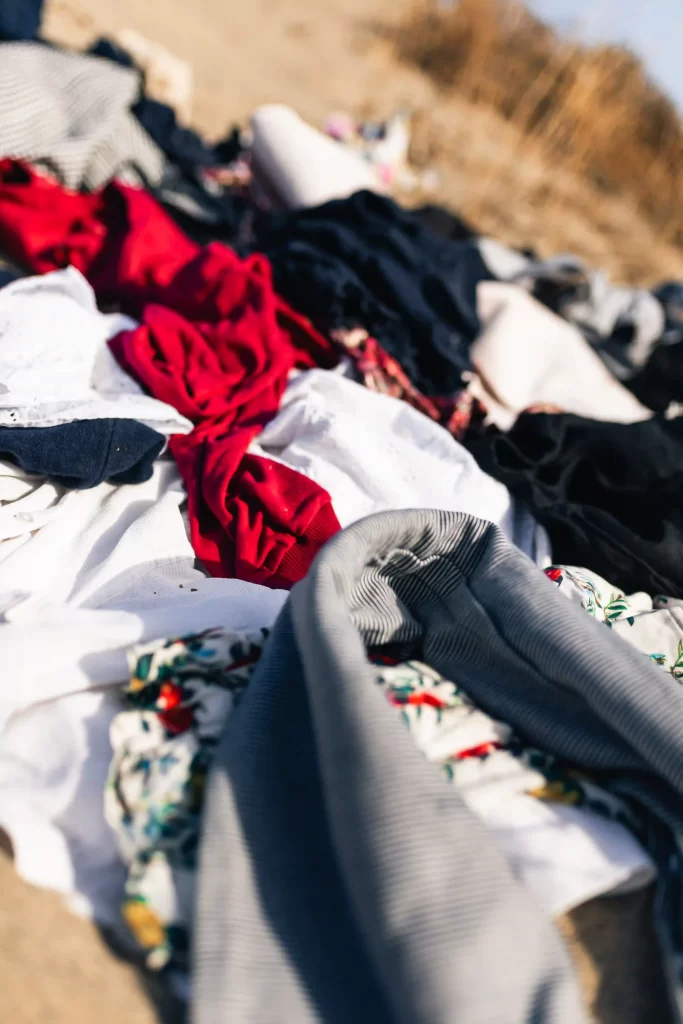
Fabric
In India, a significant amount of textile waste, including cotton, cotton blends and synthetic fabrics, ends up in landfills, with a large portion of this waste being pre-consumer and post-consumer textile scraps. With an estimated 7,793 kilotonnes of textile waste generated annually, a large portion of this waste is from old clothes and discarded fabrics. 61% of textile waste mainly consists of cotton and cotton blends in India; however, there is a growing trend of polyester and other synthetic blends, which currently form approximately 19% of total waste generated.
We recycle fabrics to make sure we do our part to stop them from being sent to a landfill. When you send us your fabrics, we make sure they are donated to an NGO or given to another facility that is upcycling them for further reuse. Fabrics have to be clean and unsoiled before we can recycle them. Please contact us to learn more.

Small Actions for a Big Environmental Impact
Recycling Ideas from the Worlds
Proper waste separation is one of the simplest yet most impactful steps we can take toward a sustainable future. By sorting waste into recyclables, compostables, and general trash, we help preserve natural resources and reduce the strain on landfills. This process not only minimizes pollution but also conserves energy and supports the circular economy.
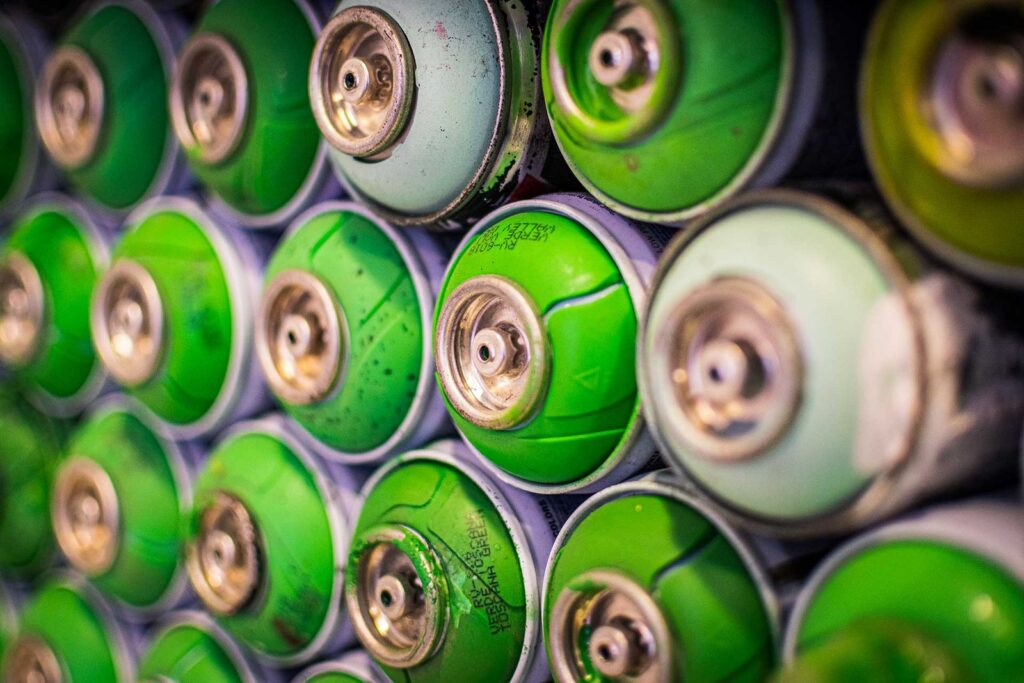
Article 1
When waste is sorted correctly, hazardous materials are kept out of landfills, preventing harmful substances from leaching into soil and water.
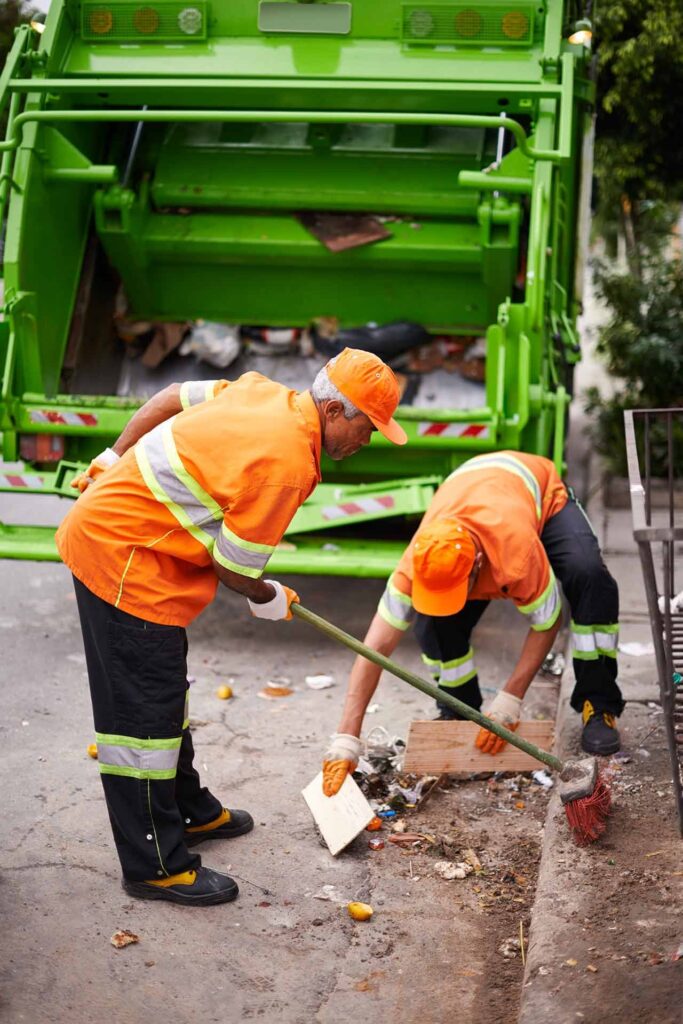
Article 2
We believe in fair and transparent pricing for all our waste management services. By promoting correct waste sorting and recycling.
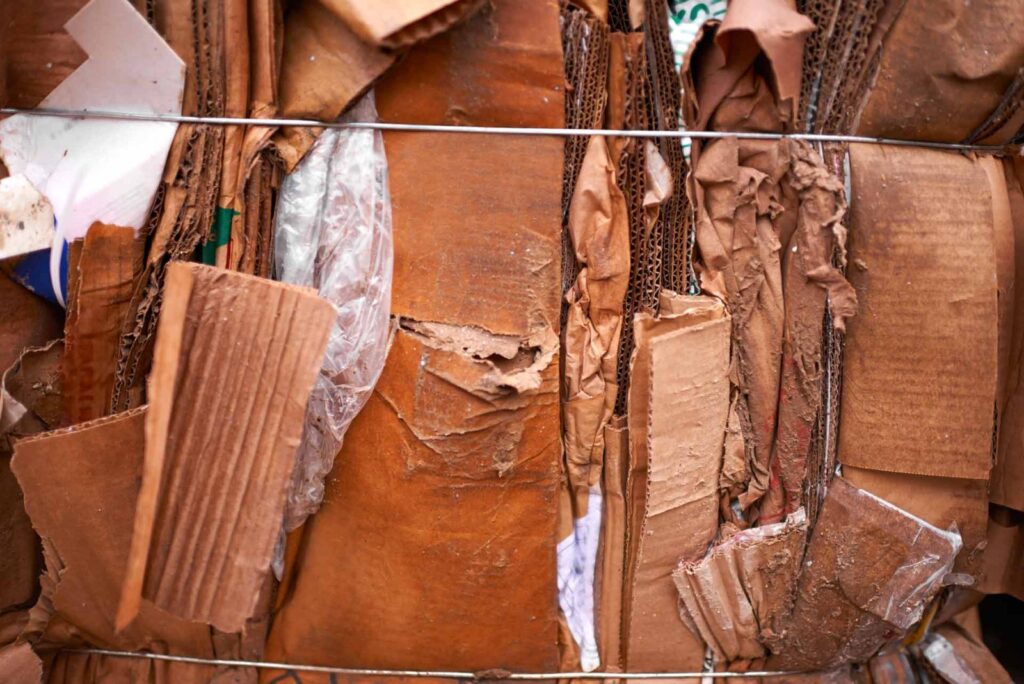
Article 3
Waste separation ensures that recyclable materials are handled correctly, enabling them to be repurposed into new products. This reduces the need for raw materials.

Article 4
We believe in fair and transparent pricing for all our waste management services. By promoting correct waste sorting and recycling.

Insights & Resources
Strategies for Waste Management
Explore a collection of informative articles, industry trends, and practical advice to help you manage waste more effectively.
